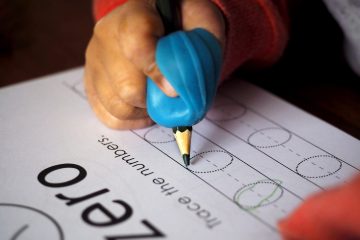 One of the most challenging conversations that parents and teachers can have involves the possibility that a child might have a reading or learning disability (RD/LD). Parents might notice at home that a child struggles with reading, or with particular aspects of reading—phonics, for example. Or, a teacher might discover during an assessment that a child is reading at a lower level than expected.
One of the most challenging conversations that parents and teachers can have involves the possibility that a child might have a reading or learning disability (RD/LD). Parents might notice at home that a child struggles with reading, or with particular aspects of reading—phonics, for example. Or, a teacher might discover during an assessment that a child is reading at a lower level than expected.
When a child is having difficulty learning, parents are understandably concerned and want to know exactly what is impairing their child’s learning. It’s important to understand, though, that the root causes of reading difficulties can be incredibly diverse, and they are not always related to learning disabilities! Sometimes they can result from:
- Lack of exposure to or practice with reading: Children who come to school without having spent much time with letters, words, or books will sometimes take longer to become comfortable with reading skills. For such children, extra practice at school and at home can bring them up to speed.
- Vision or hearing impairments: Frequent ear infections during the infant or toddler years and other early childhood illnesses may affect the development of early reading skills. Hearing impairment may lead to sounds being distorted or even inaudible, and vision impairment may make recognition of letters and words difficult. Doctors can recommend the appropriate treatment if a hearing or vision impairment is identified.
- English language learners can also demonstrate reading delays, as they may have learned to read in a language other than English, may speak a language with a different phonics basis, or may be struggling with comprehending teachers’ instructions. Often, ELL students make rapid reading gains when given extra practice and specialized instruction.
- Behavioral or developmental disorders such as ADHD and autism can also impact the learning process.
Unfortunately, in some cases, the root cause of reading difficulties is, in fact, a learning disability. Dyslexia is perhaps the most well-known learning disability, but there are varying degrees of severity within a dyslexia diagnosis, which may result in varying outcomes. There are also more generalized types of learning disabilities, such as those related to auditory processing or speech/language delays.
Assessing the Cause of Reading Difficulties
The process of examining the source of a child’s reading difficulty can differ from school to school. However, when a difficulty is first observed, teachers or reading specialists will usually devise a course of targeted instruction and then monitor the child’s “response to intervention.” The manner in which the child responds to instruction can give teachers valuable information relating to the source of the reading difficulty. Children who do not demonstrate reading improvement, even after intervention, will typically be recommended for specific assessment. Usually consisting of formal, standardized tests, educational assessments can result in a more specific diagnosis.
Types of Reading Interventions
Teachers and parents can work together in supporting a child throughout this process, especially as more information becomes available. If a specific diagnosis is made, parents and teachers will then be able to come to conclusions about the best learning environment for a child going forward. Some children with an LD diagnosis will do best in special education programs, or even in specialized schools. Some, however, may remain in a general education classroom but receive differentiated instruction. They may take untimed tests, receive audiotape versions of textbooks, or be given alternate versions of homework assignments, for instance.
Above all, parents whose children receive an LD diagnosis should know that having a learning disability is in no way a barrier to leading a successful and fulfilling life! A quick Internet search will reveal countless names of people who have had a significant impact on society, despite their “disability.” What a diagnosis does mean, however, is that the child may need additional support and/or alternative methods of learning during his or her time at school.
If you suspect that your child may have a reading impairment such as a learning disability, don’t panic, but do seek advice from your child’s teacher and/or pediatrician. In the meantime, you can learn more about conditions that may affect a child’s learning at the National Center for Learning Disabilities’ website.


